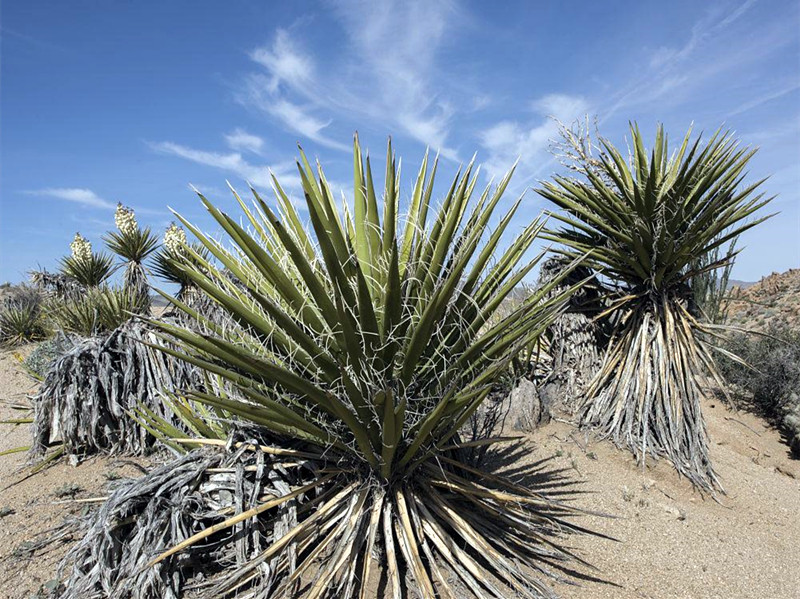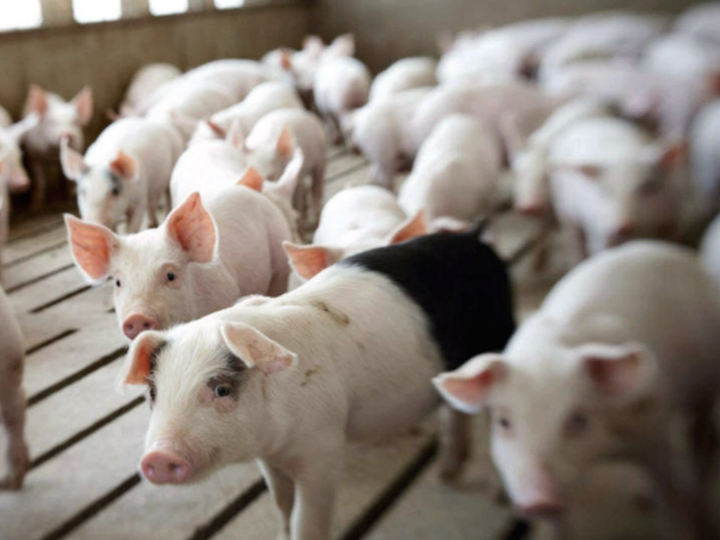Why Yucca Schidigera Extract Can Be Used To Reduce Ammonia Levels?
Ammonia is a colorless and pungent gas, is a common byproduct of biological processes. While it has several industrial uses, its release into the environment can lead to water and soil contamination, harming aquatic life and affecting ecosystems. Ammonia pollution has become a pressing concern across various industries, prompting the search for effective and sustainable solutions. It’s commonly found in waste products, such as livestock manure and wastewater, and its release into the environment can lead to pollution and health hazards. In recent years, Yucca schidigera extract has emerged as a natural remedy with the potential to significantly reduce ammonia levels.
In 1976, Rawnland et al. reported for the first time the unique effects of schidigera extract on the production of laying hens and the reduction of ammonia concentration in chicken farms. In 1981, Johnston et al. proved that Yucca schidigera plants can reduce the level of harmful gases such as ammonia and hydrogen sulfide in poultry, accelerate the decomposition of nitrogen and phosphorus in feces and urine, and reduce environmental pollution. In this article, we’ll delve into the science behind yucca extract and explore how it can be harnessed to combat ammonia-related issues.
How Yucca Schidigera Extract Reduce Ammonia
Yucca schidigera, a desert plant native to North America, has long been recognized for its diverse medicinal properties. Its extract contains compounds that exhibit natural surfactant and anti-inflammatory properties. Yucca schidigera extract is derived from yucca plants by reflux extraction and concentration in solvents such as methanol (or ethanol), and then by water and n-butanol two-phase extraction to remove impurities, take the n-butanol phase and after evaporation, ethyl ether is used to reflux to obtain ether insoluble matter, namely yucca schidigera extract. The main components include steroidal saponins, smilagenin, hecobenin, free saponins and polyphenol complexes.
Yucca schidigera saponins, the compounds that can break down urea, a major source of ammonia. When incorporated into waste management systems or animal feed, yucca extract helps convert urea into less harmful forms, reducing ammonia emissions. This mechanism not only benefits the environment but also contributes to improved animal welfare. Recent studies have highlighted its potential to alleviate ammonia-related issues, making it a promising candidate for sustainable ammonia reduction.
Reduce the concentration of ammonia in animals
Yucca schidigera extract can reduce the concentration of ammonia in animals by adsorption of ammonia and inhibition of urease activity. Yucca schidigera extract has a strong adsorption capacity for ammonia gas, which can reduce its emission and improve the internal environment of animals. Head et al reported that free saponins, fractionated part, non-fractionated part, deodorant enzyme h and carbohydrate complex can adsorb ammonia. Buggle et al. also believed that macromolecules and sequence molecules in yucca extract had adsorption capacity for ammonia. He then added 40 ml/kg of yucca extract to rumen fluid in vitro and found that 90% of the free ammonia gas was adsorbed.
Whether Yucca schidigera extract reduces ammonia concentration in animals by inhibiting urease activity is currently controversial. Aspund test showed that steroid saponins had no inhibitory effect on urease activity, while free saponins had strong inhibitory effect on urease activity. Preston et al. reported that the addition of yucca extract reduced blood urea nitrogen (RNA) and urinary ammonia nitrogen excretion in male rats. He believes that yucca schidigera extract has the effect of inhibiting urease activity, can adsorb ammonia and then slowly release, and reduce the decomposition of urea into ammonia. However, HEAD and Buggle et al. believed that yucca schidigera extract had no inhibitory effect on urease activity. Although there is some disagreement on the mechanism of action of yucca schidigera extract to reduce ammonia concentration in animals, its effect is still recognized as relatively obvious.
Reduce the ammonia concentration in the house
The mechanism of Yucca schidigera extract to reduce the concentration of ammonia stables is mainly to prevent the nitration of nitrogen in feces and urine, so that nitrogen exists in inorganic form so that the amount of ammonia emitted to the air is reduced. This was demonstrated by Sutton et al., who cultured pig manure with Yucca schidigera extract and found that the concentration of ammonia dropped by 55.5%. In 1976, Rawnland et al. added 31-155ml/kg of Yucca extract to the diet of laying hens, and found that the concentration of ammonia in the hen house significantly decreased, and the laying rate of laying hens increased with the increase of yucca extract. Colina et al. added 125 ML/KG of Yucca extract to the diet of weaned piglets and found that the ammonia concentration in the pig house gradually decreased. Crober et al reported that adding 100ml/kg of yucca schidigera extract to laying hens’ diets reduced ammonia concentrations by 33.9% in computer-ventilated winter coops.
Reduces urinary nitrogen and phosphorus excretion
Yucca saponins can inhibit the urinary tract and reduce the excretion of nitrogen and phosphorus in feces and urine. Preston et al. added yucca schidigera extract to the diet of male rats, and the urinary nitrogen and phosphorus excretion decreased. Kawai et al. also obtained the same result by conducting experiments on sheep. Adding Yucca schidigera extract to the diet of cultured shrimp can reduce the amount of nitrogen excretion in water, thus effectively improving the water quality. In addition, Min et al. reported that phosphorus excretion of growing pigs reached the lowest point when Yucca extract interacted with 18% protein. In addition, in vitro rumen fluid test of dairy cows, it was found that adding yucca schidigera extract can significantly reduce methane production, reduce energy loss and reduce environmental pollution.
Applications of Yucca Schidigera Extract in animal feed
By adding the extract to animal feed, farmers can effectively mitigate ammonia emissions from livestock waste. This not only minimizes the environmental impact but also enhances the quality of manure as a valuable fertilizer. As a result, yucca extract contributes to more sustainable and efficient farming practices.
The utilization of yucca extract for ammonia reduction offers a range of advantages. Firstly, it provides a natural and eco-friendly alternative to traditional ammonia-reducing agents. Additionally, it aids in odor control, creating a more pleasant environment in confined spaces. Furthermore, the incorporation of yucca schidigera extract can enhance waste decomposition processes, promoting nutrient recycling in agriculture. Beyond its ammonia-reducing properties, it offers potential solutions to other challenges. These include its use as a natural pesticide, its role in enhancing plant growth, and its application in pet care products. This adaptability underscores the value of yucca extract across various industries.
As sustainable practices gain prominence, yucca extract is poised to play a pivotal role in ammonia reduction and environmental preservation. It presents a compelling solution to the persistent issue of ammonia pollution. Its natural properties, versatility, and potential for widespread application make it a valuable tool in the quest for a cleaner and more sustainable planet. By incorporating yucca extract into various aspects of life, we can contribute to a healthier environment for current and future generations.




